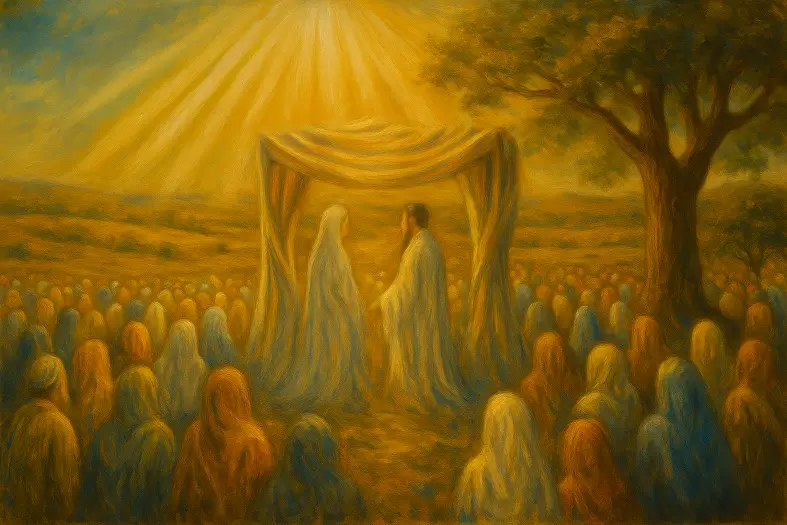


A Jewish father must redeem his firstborn son by giving five silver shekels to a Kohen, beginning from the child’s 30th day of life.
The mitzvah of Pidyon HaBen requires a father to redeem his firstborn son who is born naturally (not by cesarean, and not if the father is a Kohen or Levite). The redemption is performed by giving five silver shekels (or their equivalent value) to a Kohen, symbolizing that the child belongs to Hashem, Who spared Israel’s firstborn during the Exodus.
This mitzvah both commemorates the miracle of Egypt — when Hashem struck down the Egyptian firstborn but spared the Israelites — and acknowledges that all life belongs to Him. The Kohanim, who serve in Hashem’s stead, receive the redemption money.
Commentary & Classical Explanation:


Represents Emunah—the deep, inner trust in Hashem’s presence, oneness, and constant involvement in our lives. This badge symbolizes a heartfelt connection to G-d, rooted in belief even when we cannot see. It is the emotional and spiritual core of many mitzvot.
Represents the concept of spiritual intentionality, purity, and sanctity—set apart for a higher purpose.
Signifies awe and reverence toward Hashem—living with awareness of His greatness and presence.
Mitzvot that strengthen communal life — showing up, participating, supporting, and belonging. Community is where holiness is shared, prayers are multiplied, and responsibility becomes collective.
Mitzvot that define and deepen the relationship between a person and their Creator. These include commandments involving belief, prayer, Shabbat, festivals, sacrifices, and personal holiness — expressions of devotion rooted in divine connection.

Dive into mitzvos, prayer, and Torah study—each section curated to help you learn, reflect, and live with intention. New insights are added regularly, creating an evolving space for spiritual growth.

Explore the 613 mitzvos and uncover the meaning behind each one. Discover practical ways to integrate them into your daily life with insights, sources, and guided reflection.

Learn the structure, depth, and spiritual intent behind Jewish prayer. Dive into morning blessings, Shema, Amidah, and more—with tools to enrich your daily connection.

Each week’s parsha offers timeless wisdom and modern relevance. Explore summaries, key themes, and mitzvah connections to deepen your understanding of the Torah cycle.